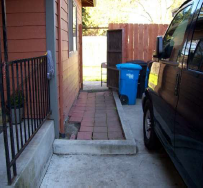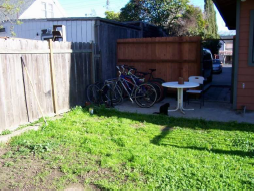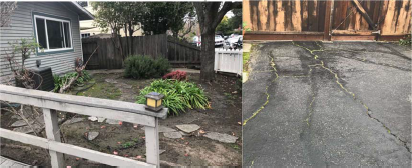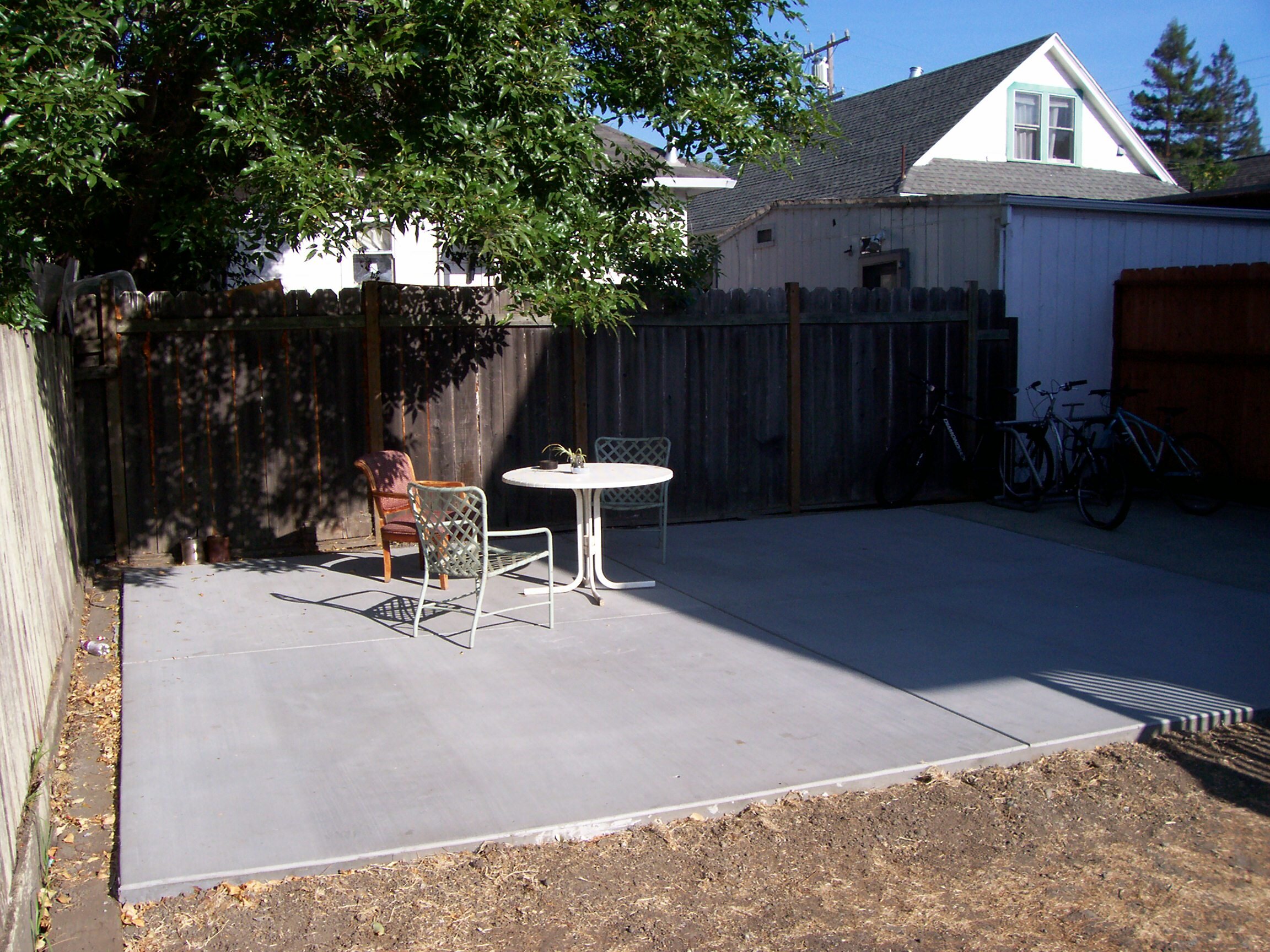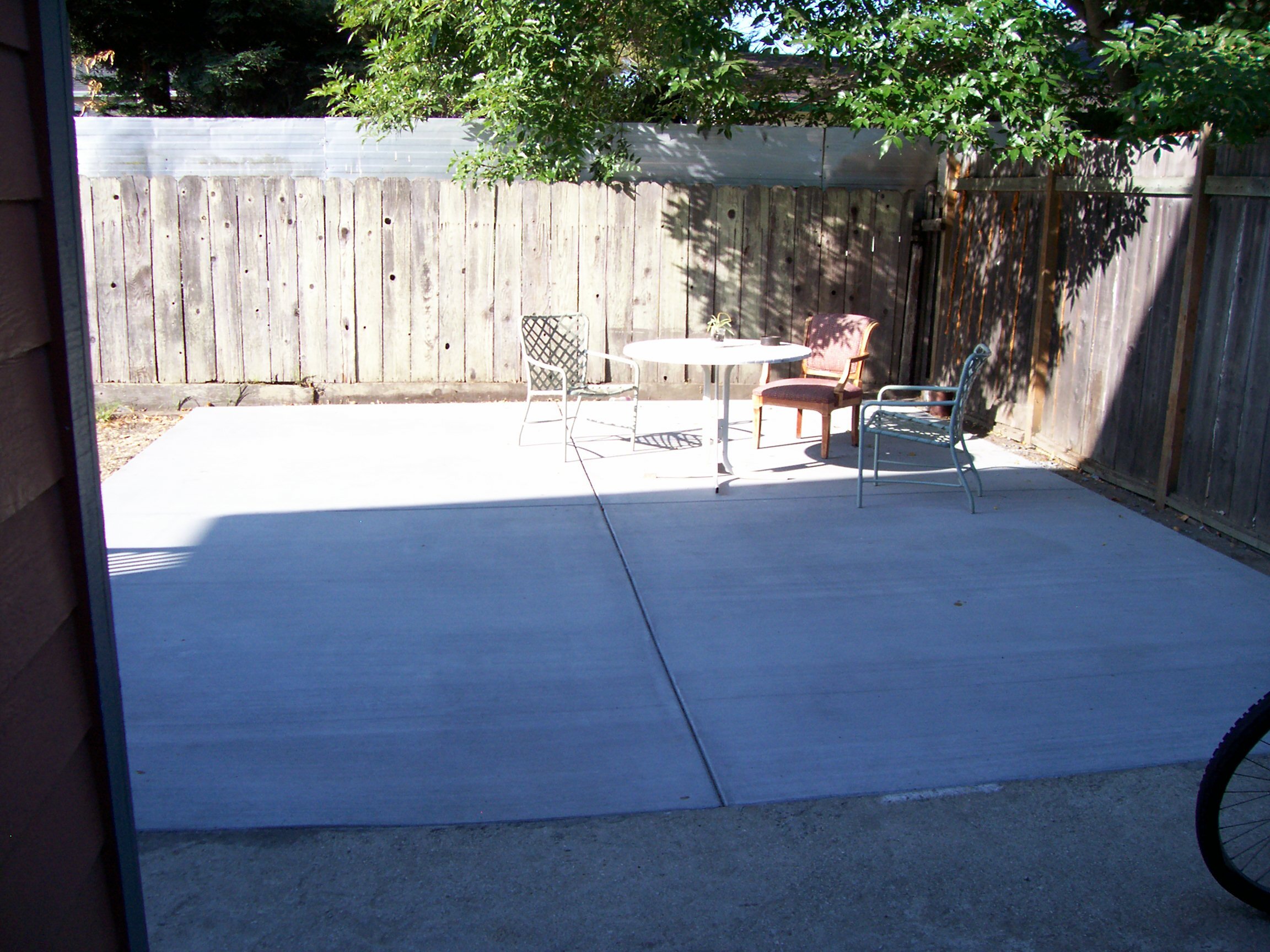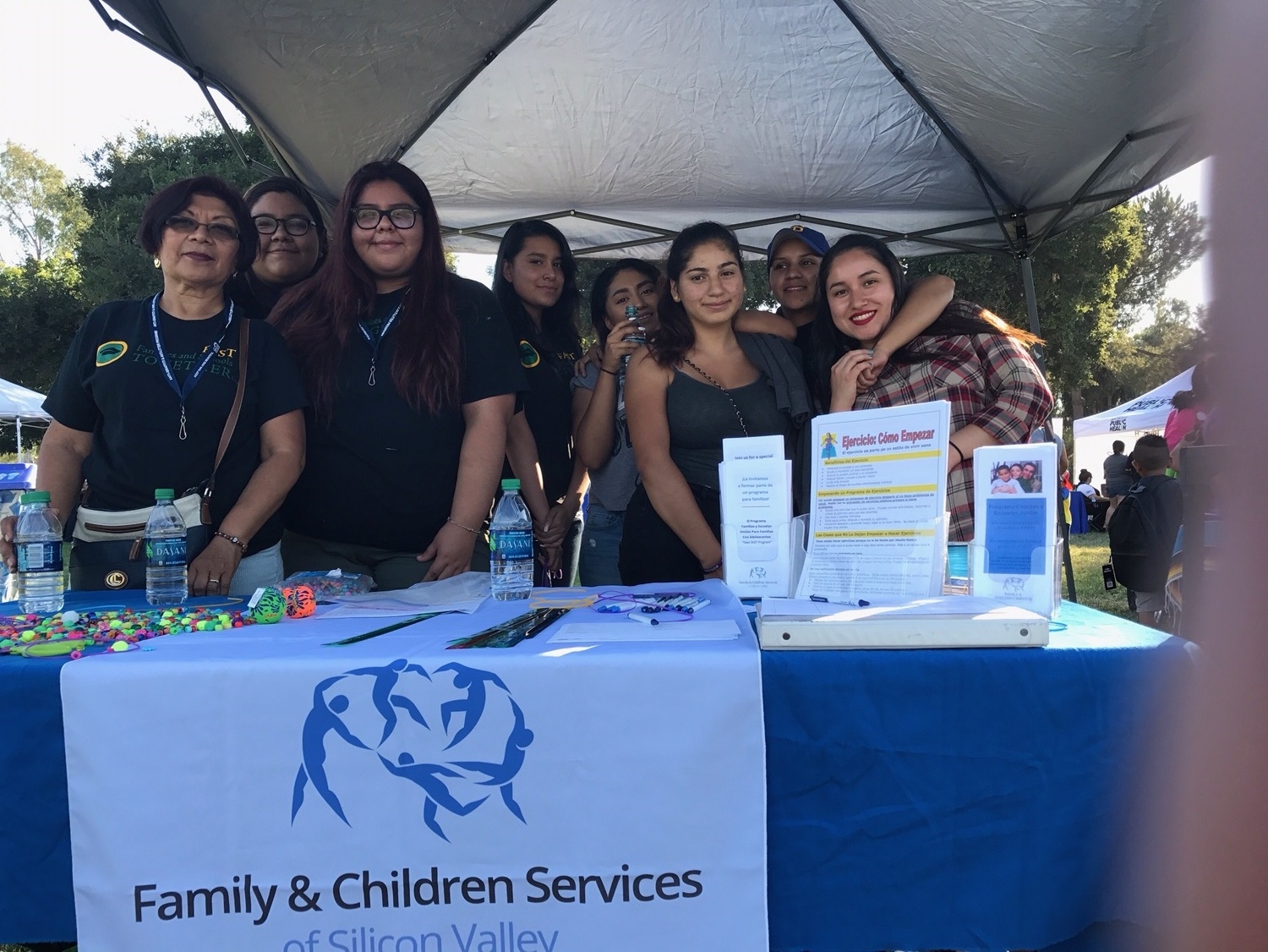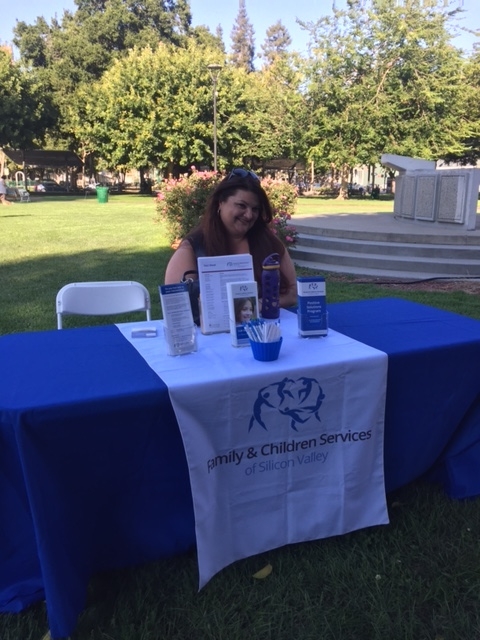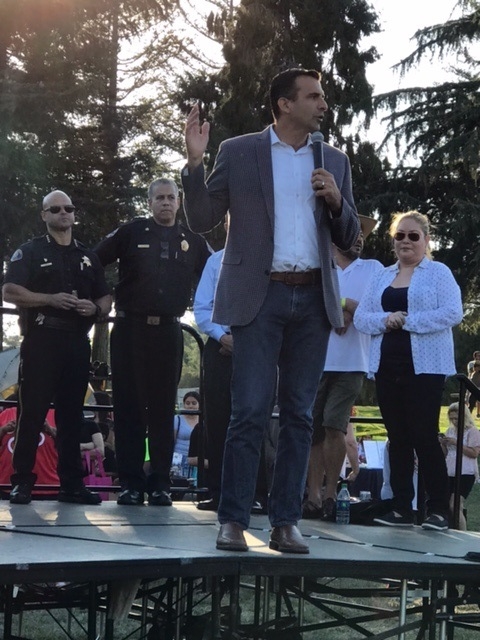Caminar is thrilled to partner with NAMI-San Mateo and Edgewood to bring our Quarterly Community Advocacy Forum to our San Mateo County neighbors. We are specifically focused on active advocacy for improved supports and services for the young people.
This year’s first major advocacy activity was the February 1, 2018, forum. We were delighted that the February forum drew engaged community members and followed nicely on the heels of the very first forum, which we hosted last November.
Recap of November 2017 Community Forum
The November 2017 forum focused on the hot topic of why it’s so hard to get truly supportive housing in our county, and what should be part of an effective holistic wellbeing program for adults with serious mental health disabilities.
The panel was led by a mom, followed by Edgewood’s Community Housing Manager, Caminar’s Director of Supported Housing, the owner and program manager of Ohevet’s Board & Care, and the Executive Director of Mental Health Association of San Mateo County. The speakers shared the challenges of finding and accessing supported housing and listed what is available through their programs - about 400 beds, many of which have significant restrictions around access.
The audience raised lots of important ideas, including:
- “Private-pay” support services, for folks who don’t qualify for county programs or need more than what adult service provides.
- A mental health version of the NextDoor app for finding/ sharing housing.
- Creating a parent co-op to fund supported housing for their adult children.
- The need for mentors to help provide community support.
- The major need for MUCH more diversity in “providers” to match the diversity in our community.
- Asking Facebook and other large employers to include housing for adults with special needs near their campuses.
Recap of the February 2018 Community Advocacy Forum
The February 2018 Forum was designed to ask how our diverse community can collaborate to create new business models for integrated care, and new funding models beyond the basic “ask the county and a few donors to pay for it” approach.
We had a packed conference room, with community members from ages 23 to 83, all participating in a lively discussion. The evening’s conversation began with our panel members giving brief overviews of their experiences and ideas.
Alan Cochran, the peer member of NAMI-San Mateo’s board of directors and a founding member of the Peer Collaborative, spoke first. He is a very strong advocate for our community becoming more effective and inclusive in its supports and services for folks living with mental health challenges. Alan shared his experiences trying to find a supportive home – a place and people who supported his ongoing recovery. He noted that recovery can be impossible without the bedrock of a safe home. When he started the search for home and a support network, many of the peer support groups and programs didn’t exist. What worked for Alan was having strong friendships nearby and strong ties to family out of state. These kept him moving forward. Alan’s big take-home message: Reach out, and you will find there are others sharing your struggles, places you can go for support, you have OPTIONS!
Dr. Frank Lee shared his perspective as a parent, biotech entrepreneur, and business innovator. He noted that serious mental health disorders have the biggest overall negative impact versus other diseases on Americans’ lives starting in our early teens all the way until we reach our 70s. They also were the most expensive to treat – in 2013, $201 billion were spent. In addition to the direct cost of care, these illnesses also increase the medical costs for other illnesses folks might have – adding depression to diabetes raises medical costs four-fold, for example. From there, Frank detailed a number of fascinating and innovative initiatives to drive and deliver mental health care.
Next up was Bill Lowell, family member and a coordinator of San Mateo County’s “Home for All” initiative. “Home for All” is a County-led collaborative of local governments, businesses, schools, advocates and not-for-profit organizations working to increase local housing production and preservation so that folks of all ages, backgrounds and income levels have the opportunity to call San Mateo County home.
Bill retired from his position as Director of the County’s Department of Housing in 2015 after pulling together several affordable housing projects with units reserved for folks grappling with mental health challenges. Bill noted that the three crucial ingredients of a successful affordable supportive housing program are “funding, land, and political will.” Check out all the info and sign up for updates at http://homeforallsmc.com/toolkit/
Chip Huggins, Caminar’s CEO and long-time non-profit and for-profit executive, talked about his agency’s expanding supportive housing programs. Chip shared an intriguing Tiny Home project he proposed to the county using the site of a long-closed boys’ camp to create an 80-unit community with support staff available 24/7. While some of the tiny homes would be reserved for low-income folks with mental health and other challenges, the community would also welcome other low-income residents including local farm workers.
Chip wants to include social enterprises on the site to provide vocational training and generate income that could cover some of the expenses for this program. The project design also makes the most use possible of existing infrastructure – admin buildings, utilities, and roads. Caminar, which would hold the master lease, is raising $3-$4.5 million in donations to combine with county subsidies and income from rent ($50 - $125/night).
In another approach to expand access to services, Caminar has two private-pay programs. Olivos Private Care is a concierge psychiatric and psychosocial program designed to help improve clients’ overall health and wellness. The Olivos team includes a psychologist, psychiatrist, case manager, registered nurse, outpatient therapist, job developer, educator, and peer specialist collaborating with the client and their support network. They can provide individualized services ranging from acute psychiatric emergencies to creating and maintaining a plan of care for sustained living in the community. The cost is based on the services you access, and insurance not accepted.
Chip also mentioned Linden House, an apartment building that uses income from clients who can pay “market rate” to subsidize services for low-income clients.
Finally, Dan Peck, a director at Third Sector Capital Partners, is a family member who transitioned from a finance career to work on creating innovative ways to find and combine government and philanthropic funds. Dan’s goal is to tackle the multi-faceted issues facing folks dealing with mental health and other serious life challenges. Third Sector Capital has pulled together some novel combinations of collaborators to increasing affordable supportive housing as part of a holistic wellness approach – even when the uphill political battle seems unwinnable.
Dan noted that the key is finding a way to harness the community will to make things happen. He described how Boards of Supervisors for both Los Angeles County and Santa Clara County carried out significant research into the scale and root causes of their local mental health and housing challenges. What they learned convinced them that continuing to do nothing because of objections from landlords, homeowners, and others would drive huge costs going forward for the county. Actively working to house the chronically homeless – which would require supportive services as well – could cut taxpayer costs by 79% in LA county!
Third Capital’s team is adept at finding and pulling together pools of private and public funds, including risk-averse governments and risk-taking philanthropists, and helping the parties find a way to collaborate. Dan noted that a crucial part of the long-term success of such programs will be tracking how well these programs work for people. Positive outcomes will generate cost savings, which can then be recycled into other projects.
So how can we change hearts and minds here in San Mateo? An audience member asked how we can keep the panel members and the audience talking and collaborating to bring this change to our county. The audience consensus is to reach out to our local panel members to continue brainstorming on how we can bring the county to develop a clear cost-benefit analysis that makes it clear that continued inaction will only make things worse for homeowners, businesses and the broader community.
Several audience members plan to work on making the next brainstorming sessions a reality - so keep watching for emails and flyers. Be part of generating a wave of support for expanding supportive housing in San Mateo County!
Click here for the full recap of the February meeting.
For more information on the Quarterly Community Advocacy Forum and the future discussions, please contact:
Cynthia Robbins-Roth
Family Support Manager
Edgewood’s TAY Program
415-725-0755
cynthiar@edgewood.org
Leanna Harper
Family Partner
Caminar
650-393-8976
leannah@caminar.org
Helene Zimmerman
Executive Director
NAMI- San Mateo
650-638-0800
hzimmer@namisanmateo.org
And, save the date for the next forum, to be held on Thursday, June 7
Dinner: 5:30 pm
Panel and Discussion: 6:00 - 7:30 pm
Location: Silicon Valley Community Foundation, 1300 El Camino Real, San Mateo


